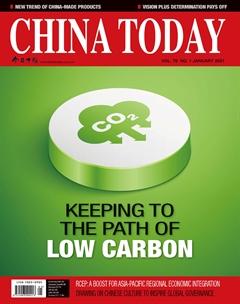Development and Security in the New Era

Development and Security in the New Era
Peoples Tribune
Issue 11, 2020
To improve Chinas governance capacity, it is a must for the country to sum up hands-on experience in innovating national governance capabilities and give priority to the following four points. First, Party building should become the foundation and guidance for innovating national governance. Only by fully leveraging the Partys advantages in organization can grassroots social governance find its guarantee. Second, ideological and cultural guidance should play an important role. The key to grassroots social governance lies in uniting people. Only when people have a sense of belonging and identity can they generate powerful impetus. Third, sparking the enthusiasm, initiative, and creativity of the principal entities of social governance based on consultation, joint contribution, and shared benefits can greatly advance social governance. Fourth, to modernizing social governance, the modernization of methods and means holds the key. Only by carrying out beneficial practices in autonomy, rule of law, rule of virtue, and science and technology can the country promote the continuous improvement and development of social governance.
Epidemic, World Economy, and East Asia
World Affairs
Issue 23, 2020
As a year destined to be among the most memorable, 2020 is about to end leaving people with mixed feelings. The COVID-19 pandemic is still ongoing in many areas. The global economy is badly hit, facing an unprecedented downturn since World War II. Major global trends have been accelerated by the pandemic, such as the eastward shift of the world economic center.
People currently cannot accurately assess the epidemics far-reaching impact, yet there are indications. Chinas performance in epidemic control and economic recovery is obvious to all. East Asian countries have shown a certain civilizational similarity. Their achievements in epidemic prevention and control as well as resumption of work and production are undoubtedly the best around the world. In this context, the cooperation of East Asian countries, especially the signing of the Regional Comprehensive Economic Partnership (RCEP) agreement, is of extraordinary significance not only for regional development, but also for global economic recovery and prosperity.

Intangible Cultural Heritage: Preserving and Flourishing
Oriental Outlook
Issue 24, 2020
In 2005, the State Council issued the notice on strengthening cultural heritage protection, and in 2006 China announced the first national intangible cultural heritage list. So far, China has about 100,000 items of intangible cultural heritage at various levels, including 1,372 national-level items, and 3,068 national-level inheritors of intangible cultural heritage.
Chinas policy for intangible cultural heritage protection is “giving priority to both preservation and restoration, and pursuing sound utilization and development.” Short video platforms have made many unknown intangible cultural heritage projects accessible to the broader world. In cities with abundant intangible cultural heritage resources, the government has worked hard to set up a platform for both enterprises and inheritors to integrate culture and tourism. Intangible cultural heritage urgently needs the attention, learning, and inheritance of young people, to inject new vitality into those old skills together with new perspectives, thinking, and technological means.
Consumption without Saving
Sanlian Lifeweek
Issue 50, 2020
Young people have been regarded as perfect consumers and the main force in expanding domestic demand. However, many often end up in debt.
The savings rate of the younger generation is significantly lower. This helps expand domestic demand. The worrisome part is that some young people rely on borrowing to spend excessively. Chinese society is changing too fast, and it is often difficult to judge and quickly identify risks for newly emerging trends.
Storms in financial systems start with bad debts. When the hope of consumption to boost the economy is placed on young people, their true purchasing power must also be factored in. Consumerism and the industry for consumer loans encourage people to spend and young people are tricked by various predatory business methods. Before purchasing, they should think twice about the spending power and the amount of borrowing they can afford. This is not only a personal debt problem, but also related to the safety of the countrys financial system, economic, and social stability.

